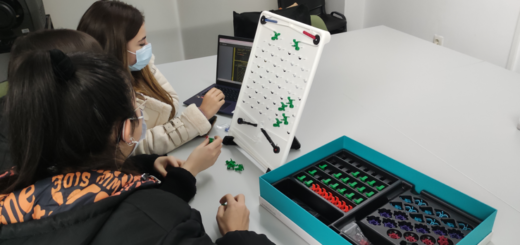1. The pandemic that has fed off humanity for the last months changes —and will eventually change— the way in which we perceive everything that happens through screens in schools and universities.
2. The screen-based digital hodgepodge is not new to many of the scholars who study schools, learning, or generally, the ways in which individuals and societies experience life and become something else based on those life experiences. These scholars, who are normally known as ethnographers —if they focus on schools and education, then educational ethnographers— nourish humanity with detailed and fresh descriptions of reality.
3. The earliest forms of more formal ethnographic accounts emerge with technological advancement after the industrial revolution was a widespread fact. These accounts departed from questions such as: What impact does the invention of the steamer in expanding liberal revolutions? Or how did the telephone and encrypted codes of communication change the ways in which we socialize with our loved ones or the ways in which the most dreadful war atrocities were perpetrated?
4. It was important to describe, know and recognize the relevance of social impacts, so that other scientific disciplines could focus on what was relevant. It comes to our mind how the mathematician
Alan Turing deciphered the Enigma — a milestone which, without a doubt, tilt the balance in favor of the Allies and in detriment to the Nazis in WWII. Such a discovery preceded more advanced remote communication systems, to which Internet owes its origin.
5. The truth is that, propelled by the advancement of digitization, technological changes are increasingly frequent and profound. Ethnography is crucial to provide fine-tuned descriptions of the contemporary social and cultural processes behind digitization.
6. Since ethnography is crucial in understanding these processes and given that these processes happen wholly or partially online, ethnography should adjust accordingly. Research practices, data collection instruments and analytical tools in ethnography are expected to adjust to the new context.
7. Doing ethnography in a hybrid or digital world carries with it a distinct way of studying reality
.
8. Contemporary digital culture is participatory, collaborative, and open; everyone can —theoretically— participate. Take Wikipedia as an example.
9. Contemporary digital culture is multimodal: written text no longer channels predominant meaning. We need to consider still and moving images, audio, colors, saturation, and many other semiotic resources (resources to create meaning) relevant to the ways in which we communicate, transfer and process information and content.
10. Contemporary digital culture is a mesh of connections: the associations and linkages we can aspire to make through the Internet are countless —provided we know how to use the Internet critically—. This justifies the need for future approaches to the study of digital reality that are intrinsically interdisciplinary, where several expert voices from multiple disciplines come together to better our understanding.
11. Contemporary digital culture blurs previously well framed spaces and contexts: there are teachers who upload videos on micro-video sharing applications such as TikTok, with thousands of visits. We do not want to rank spaces or contexts, because frontiers between the academic and the vernacular, between the formal and the informal, are ever blurrier under the new reality that is upon us.

12. Focusing the debate on technologies is not a solution to untangle the digital web. It helps —
a lot, in our opinion— to look at the social and cultural impact technologies exert on the ways in which individuals conduct themselves, perform social activities or learn. Such an exploration geared towards the more sociocultural implications can certainly contribute to adjusting our responses to preserve the educational and civic values that future generations will need to operate effectively and critically in a digital (or postdigital) world.
In Gewerc and Vazquez-Calvo (2020), readers will be able brush up on how the concepts above are transformed by contemporary technologies. The reading can be significant to researchers, teachers across the curriculum, students, and virtually anyone who wishes to know why ethnography is an ever more valid approach to research.








